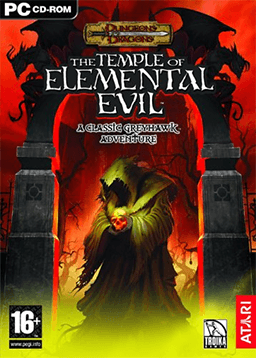A digital iteration of Dungeons & Dragons has been a pipe dream for Wizards of the Coast for years now, and it shows: the brand boasts about as many video game titles as there are rulebooks.
Time and time again, Wizards of the Coast has tried to make their brand look hip and contemporary, and to the company, that seems to mean making video games.
Unfortunately, every time they’ve attempted this in recent history, it’s been a critical failure, making the company seem tragically out of touch with today’s gaming crowd.
Their latest venture, Rage of Demons, is shaping up to be no different.
Wizards of the Coast has tried to create a rather unconventional marketing campaign, one that stretches across multiple platforms. The company has put a surprising amount of focus on video games like the Neverwinter MMO and Sword Coast Legends, which are constantly flaunted even on the main page. As part of the campaign, both games will receive demon-related updates that are meant to emulate a demonic incursion on every aspect of the Dungeons & Dragons universe.
The concept behind Rage of Demons is ambitious, and if Wizards managed to pull it off right, it would be interesting. One of the key selling points for Rage of Demons is the fact that it will be something you can experience “on computer, console or tabletop.”
The adventure itself is clearly a solid product. A 256-page scenario for tabletop fans of Dungeons & Dragons is nothing to sneeze at, but Wizards of the Coast has been drumming up hype in all directions since their announcement way back in May.
Of course, on the video gaming front, there just isn’t much to be excited about.
The core issue with Wizards of the Coast trying to tie their franchises together is an obvious one:
They just aren’t a tech savvy company.
Starting with the disaster that was Dungeons & Dragons: Daggerdale all the way to their most recent release, Sword Coast Legends, the company that brings us the world’s most popular roleplaying game has been stumbling when it comes to video game development.
Sword Coast Legends is a Diablo-like game with an incredibly basic story and simplistic gameplay.
Neverwinter is a free-to-play action MMO with a bloated cash shop.

By putting the spotlight on these mediocre titles, Wizards of the Coast is sullying the Dungeons & Dragons brand.
This is especially glaring since Wizards of the Coast once boasted ties to some of the most innovative RPGs of their time. Neverwinter Nights was a smashing success that managed to (sometimes to a painful degree) reflect the tabletop game’s ruleset. The same goes for The Temple of Elemental Evil, Baldur’s Gate, and Planescape: Torment, all staples when looking back at classic RPGs.

Since then, Wizards of the Coast has become notorious for their incompetence when it comes to anything that isn’t a physical product. This makes the clever idea of tying together their franchise on a physical and digital level feel half-assed.
Long-time Dungeons & Dragons players, digital or otherwise, are put off by the awkward mechanics in games like Sword Coast Legends and Neverwinter. These games are only vaguely reminiscent of the beloved roleplaying game.
Of course, games are often marketed toward different groups of people. It’s entirely possible that Wizards had intended these to be a starting point for new players. Unfortunately, that, too, seems unlikely. Anyone looking for a good RPG is undoubtedly going to look elsewhere, since the quality of the video games the company is associating with their brand have proven to be consistently poor in recent years.
At this point in time, it seems that Wizards of the Coast’s best bet would be to either lay off the digital campaign, or redouble their efforts by giving resources to someone who actually understands the industry.
Thankfully, Wizards’ recent foray into the video gaming industry has done little to affect the game we all know and love.
Let’s hope it stays that way.








Published: Dec 8, 2015 07:26 pm